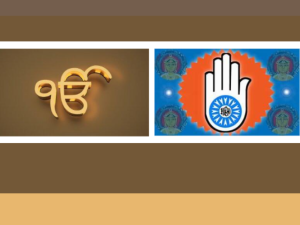Abstract
Guru Nanak, the founder of Sikhism, emphasized key principles such as the oneness of God, equality, social justice, selfless service (seva), truth, and living a balanced life. However, contemporary practices have increasingly deviated from these ideals. This article explores the divergence between Guru Nanak’s vision, as articulated in his teachings, and modern practices within Sikhism and society at large. Examples of this divergence include the rise of materialism, caste discrimination, religious ritualism, sectarianism, and the neglect of seva. The commercialization of religious practices, the persistence of caste-based divisions, and the shift towards external validation through technology and wealth contrast sharply with Guru Nanak’s emphasis on inner spirituality, humility, and service. The article argues for a return to the core values of Guru Nanak’s teachings, urging individuals and communities to realign with his vision of a more just, compassionate, and spiritually grounded society.
Introduction
Guru Nanak, the founder of Sikhism, was a visionary spiritual leader whose teachings revolutionized the spiritual and social landscape of his time. Born in 1469, Guru Nanak’s message was not just religious; it was deeply rooted in universal values such as equality, justice, and compassion. He rejected the rigid caste system, promoted the oneness of God, and encouraged individuals to live a life of humility, truth, and service to humanity [1-3]. His vision, enshrined in the Guru Granth Sahib, remains a beacon for millions of followers worldwide, guiding them towards a life of spiritual fulfillment and social harmony [4-5].
However, as time has passed, many of Guru Nanak’s core teachings have been overshadowed by modern practices, both within Sikhism and in society at large. The rise of materialism, the persistence of caste-based divisions, ritualistic religious practices, and a growing disconnect from spiritual ideals have resulted in a significant departure from Guru Nanak’s principles. This article examines the gap between Guru Nanak’s vision and contemporary practices, highlighting where we have gone wrong and the consequences of such deviations. By reflecting on these disparities, the article calls for a return to the foundational values of Guru Nanak to foster a more just, compassionate, and spiritually grounded society.
Guru Nanak’s Vision: Core Principles
Guru Nanak's vision was built on several core principles, many of which are reflected in the values of Sikhism today. His message emphasized the following:
- Oneness of God: Guru Nanak believed in the oneness of God, which is central to Sikhism [4-5]. He rejected the notion of a vengeful or distant God, instead advocating for a loving, all-encompassing, and personal deity who resides within all of creation. His teachings about God were not confined to religious dogma but were intended to inspire individuals to experience and reflect the Divine presence in their daily lives.
- Equality and Social Justice: Guru Nanak rejected the caste system and all forms of discrimination, be it based on race, gender, or social status. He taught that all people, regardless of their background, are equal in the eyes of God [6-7]. This was a radical message in 15th-century India, where the caste system was deeply entrenched and societal divisions rigid.
- The Importance of Seva (Selfless Service): Guru Nanak emphasized seva, or selfless service, as one of the core practices. According to him, true spirituality is not only about personal devotion but also about serving others without expecting anything in return. He believed that by helping others, individuals connect with God and purify their hearts [4-5].
- Truth and Honesty: Guru Nanak’s teachings stressed the importance of living a truthful life. He believed that truth is the most important virtue and that one’s actions should be guided by honesty, integrity, and fairness. For him, spiritual growth was inseparable from ethical behavior [8-9].
- Living a Balanced Life: Guru Nanak advocated for a life of balance, where one should not neglect one's spiritual duties or abandon one's worldly responsibilities. He encouraged people to live harmoniously, with devotion to God, respect for fellow humans, and dedication to family and community [10-11].
The Divergence in Modern Practices
While Guru Nanak’s vision remains robust and relevant, many modern practices, both within Sikhism and in the broader society, have strayed from these core principles. Several factors contribute to this divergence.
1. Materialism and Consumerism:
One of the most significant departures from Guru Nanak's teachings is the rise of materialism and consumerism in modern society. Guru Nanak urged his followers to avoid the pursuit of wealth and material possessions at the expense of spiritual development. He emphasized that material wealth is fleeting, and that true fulfillment comes from a connection with the Divine, not from accumulating worldly goods [4-5]. However, in today’s society, materialism has become a dominant force. The obsession with wealth, status, and consumption often overrides spiritual practices and ethical living.
In many Sikh communities, the emphasis on acquiring wealth and social status has overshadowed the core values of simplicity, humility, and selflessness. The growing trend of luxury and opulence within certain Sikh institutions and individuals reflects this shift, as does the obsession with outward appearances and the desire for recognition. This is far removed from Guru Nanak's vision of living a life of humility and detachment from material distractions.
2. Caste and Social Discrimination:
One of the most radical aspects of Guru Nanak’s teachings was his rejection of the caste system and all forms of social discrimination. He preached that everyone, regardless of their birth or social status, is equal before God [6,11]. Yet, despite Guru Nanak’s clear stance on equality, the caste system continues to have a significant influence in modern-day India and among Sikh communities worldwide.
The persistence of caste-based discrimination in the name of religion is a stark contradiction to Guru Nanak’s message. Even within Sikh communities, there are instances of individuals being judged based on their caste, with certain groups being marginalized or excluded from the religious and social mainstream. This disparity in treatment goes against the core teaching of Guru Nanak, which promotes equality, unity, and respect for all human beings.
3. Religious Ritualism and Superstition:
Guru Nanak was highly critical of the ritualistic practices that were prevalent in the society of his time. He denounced practices such as idol worship, pilgrimages, and fasting as forms of superficial religiosity that did not lead to true spiritual growth [12]. Instead, he advocated for an inner connection with God, achieved through honest living, selfless service, and meditation on the Divine Name (Naam Simran).
However, in modern times, religious ritualism has become widespread, both within Sikhism and in other religions. The focus on external rituals, such as elaborate ceremonies, expensive celebrations, and superstitious practices, has replaced the pursuit of inner spiritual transformation. For example, the growing trend of celebrating Sikh Gurus' birthdays and death anniversaries with grandiose rituals and lavish spending contradicts Guru Nanak's emphasis on simplicity, humility, and living a life dedicated to service rather than spectacle.
4. Sectarianism and Divisiveness:
Guru Nanak envisioned a society where people of all faiths could coexist harmoniously. He rejected the concept of religious divisions and promoted the idea that all religions lead to the same Divine truth [13]. His teachings emphasized tolerance, compassion, and mutual respect for people of all faiths.
Yet, in contemporary society, religious sectarianism and divisions have become increasingly prominent. Within Sikhism itself, different factions and groups often engage in debates about interpretations of scripture, practices, and leadership, sometimes resulting in conflict and disunity. Beyond Sikhism, interfaith tensions and intolerance have intensified globally, leading to violence and hatred between different religious communities. These divisions are in stark contrast to Guru Nanak’s inclusive vision of unity and respect for all.
5. Neglect of Seva and Community Service:
Seva, or selfless service, was central to Guru Nanak’s teachings. He believed that true spirituality is reflected in how one serves others, particularly the marginalized and oppressed [6, 11]. In Guru Nanak's time, seva was not merely a ritual but a means of social transformation. The langar (community kitchen) he established was a practical demonstration of this principle, providing free meals to all people, regardless of their social status.
In the modern world, while many Sikh institutions continue to run langars and engage in charity, the practice of seva has not been fully embraced by all. There are instances where religious institutions, instead of focusing on community service, become embroiled in political or financial agendas. In some cases, there is a lack of real engagement with the most marginalized sections of society, and the practice of seva is reduced to a ceremonial activity rather than a genuine commitment to improving the lives of others.
6. Disconnect from the Divine through Technological and Social Advancements:
Guru Nanak’s teachings encouraged individuals to seek a deeper spiritual connection with the Divine, transcending the distractions of the material world. However, modern technological advancements, while contributing to human progress, have created a disconnect between individuals and their spiritual selves [14]. The constant bombardment of information, the rise of social media, and the relentless pursuit of success and fame have led many to neglect the inner spiritual journey that Guru Nanak championed.
Many individuals are consumed by external distractions instead of finding peace in meditation and reflection, leading to a sense of emptiness and disconnection from the Divine. The frenetic pace of modern life often overshadows Guru Nanak’s emphasis on living with mindfulness and devotion.
Conclusion
In conclusion, the teachings of Guru Nanak were a radical and progressive call for equality, justice, and spiritual purity that transcended the limitations of his time. His vision was rooted in a profound understanding of the oneness of God, the inherent dignity of all people, and the importance of living a life of humility, truth, and service. However, over the centuries, modern practices—both within Sikhism and society as a whole—have drifted from these essential principles. Materialism, caste discrimination, religious ritualism, and the rise of external validation through wealth and status have diluted the original spirit of Guru Nanak’s message.
To realign with Guru Nanak’s vision, there is a pressing need for reflection and transformation. It is crucial for individuals and communities to embrace humility over materialism, equality over caste, and selfless service over self-interest. Guru Nanak’s call for an inclusive, compassionate, and spiritually grounded society remains as relevant today as it was in the 15th century. By returning to these core values, we can foster a more just, compassionate, and spiritually fulfilling world. Reconnecting with Guru Nanak’s teachings offers the opportunity to heal divisions, inspire deeper spiritual connection, and create a society rooted in equality, justice, and collective well-being.
References
- Singh, Daljeet, Singh, Kharak. (Eds.). (1997). Sikhism: Its Philosophy and History.Institute of Sikh Studies. Chandigarh.
- Singh Daljeet (1994). Essentials of Sikhism. Singh Brothers. Amritsar. India.
- Dillon, Machintos., Singh, Devinder Pal (2024, Nov. 9). Exploring Various Aspects of Sikh History and Sikhism - An Interview (Machintos Dillon, UK, with Dr. Devinder Pal Singh, Canada). Sikhnet.com USA.
- Sri Guru Granth Sahib (SGGS), 1983 (Reprint), S.G.P.C., Amritsar, p 1-1430.
- Singh, S. Guru Granth darpan.
- Singh, Devinder Pal (2019). Universal Relevance of Guru Nanak’s Teachings, The Sikh Review, Kolkata. WB. India. Part -I; 67(11). 15-21. Part-II 67(12). 19-30.
- Singh, Devinder Pal (2024, July 7). The Spiritual Path in Sikhism: From Love to Eternal Bliss. Asia Samachar, Malaysia.
- Singh, D. P. (2019). A Path to Truthful Living. The Sikh Review, Kolkata. WB. India. Part -I: 67 (1), 25-32. Part -II: 67 (2), 19-30.
- Singh, Devinder Pal. (2023). Truthful Living: A Perspective from Sikhism. Horizon J. Hum. Soc. Sci. Res. 5 (2), 132–139. https://doi. org/10.37534/bp.jhssr.2023.v5.n2.id1212.p132
- Singh, D. P. (2023). Spirituality - A Gurbani Perspective. The Sikh Review, Kolkata, WB, India 71 (6): 10-14.
- Singh, Deviinder Pal (2014, July-Aug.) Relevance of Sri Guru Granth Sahib in 21st Century, The Sikh Bulletin, USA. 17 (7& 8). 18-22
- Singh, D. P. (2018). Science, and Sikhism - Conflict or Coherence, Singh Brothers, Amritsar, India.
- Virk, Hardev Singh (Ed.) (2020). Interfaith Dialogues -A Sikh Perspective. Guru Nanak Foundation. New Delhi. ISBN: 978-81-948326-2-1
- Singh, Devinder Pal (2024, Oct. 17). Navigating AI in Sikhism -A SWOT Analysis of Tech and Tradition. Sikhnet.com USA.





